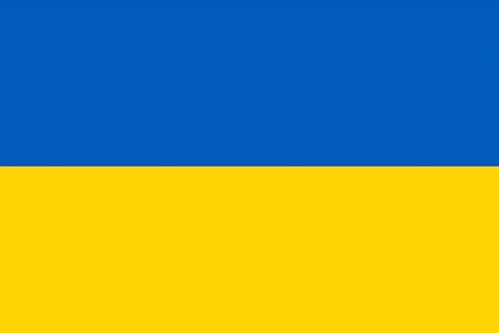by: Peter Knight
Original post can be found here.
This article is based on a post by Scott Santens, and quotes extensively from it, New information was also obtained today from an article by Violetta Orlova forwarded by a Russian BIEN activist born in Ukraine, Alexander Soloviev.
On December 19, 2021, Ukraine launched “ePidtrymka” which translates to eSupport. It was launched on Diia which is a smartphone app and web portal that itself was launched in February 2020 to function as a means of storing and sharing digital versions of documents, and also making government services available digitally instead of requiring in-person interactions only. Diia made it possible for Ukrainians to prove their vaccination status as one of the over 50 services that is now available on Diia.
Because ePidtrymka is a service that rewarded people for getting vaccinated, there are people claiming that the “Great Reset” has just begun in Ukraine with the trifecta of universal basic income, vaccination, and social credits.
What Ukraine is doing does not meet BIEN’s definition of a basic income, but it nevertheless may represent an important step towards a UBI.
What Ukraine did initially was to provide people with 1,000 UAH which is about $34. However, vaccinated Ukrainians couldn’t spend it on anything, because it was also meant as a stimulus program designed to help businesses most hurt by the pandemic. Because places like restaurants and gyms suffered the most financial loss during the height of the pandemic, ePidtrymka cards could only be used at those kinds of businesses. Other possible purchases were books, concerts, theaters, museums, and transport. The point was to help these businesses out of the hole Covid put them in while also encouraging vaccination, which actually makes a lot of sense considering those same businesses were hurt the most because they’re the places where Covid gets transmitted the most. It would be bad for these businesses to suddenly get a lot of unvaccinated customers and lead to another Covid spike.
Additionally, cashback debit and credit cards function in a very similar way, where different kinds of purchases result in different reward levels. It’s also somewhat similar to EBT (Electronic Benefit Transfer) cards (aka food stamps) that can be used to only buy certain foods, but not all foods. There was also a time limit added to the vaccination reward, where it needed to be spent within four months or forfeited. This again was meant as a stimulus, encouraging people to spend instead of save in order to more quickly grow the Covid-impacted economy.
Further, Ukraine was planning on making the ePidtrymka program available offline in 2022 instead of only available online and via the app. It was never intended to only be available online.
On January 24, 2022, there was the first expansion to the ePidtrymka program, which enabled those over 60 to spend their rewards on medicines too. This was soon followed on February 7 by extending the rewards to everyone over age 14 and also expanding available spending to “educational services, children’s extracurricular activities, staying in a summer or sports children’s camp, sporting goods, stationery, and school supplies.” This was then followed on February 14 by expanding purchases to housing and communal services for those over age 60.
The next expansion of the program was scheduled to happen on March 14 with the introduction of an additional 500 UAH (about $17) to reward people for getting a booster shot, and also the ability of those with disabilities to spend their rewards on medicine, housing, and communal services too, but then Putin sent Russian troops over the border to take over Ukraine. Thus the next expansion of the program ended up being the ability of everyone in Ukraine with ePidtrymka rewards they hadn’t yet spent to donate their funds to the Ukrainian military.
This was soon followed by the lifting of all restrictions on spending. Since March 2, as a result of the war, all Ukranians with ePidtrymka rewards have been able to spend their rewards exactly as cash, on anything they feel is best or they most need. And on March 8, an additional 6,500 UAH ($220) was added through the ePidtrymka system to every employee in the most war-impacted areas for whom USC is paid (their version of Social Security), including every entrepreneur, without any vaccination requirements applied, and without any limitations on spending – including time restrictions.
An Advisor to the President of Ukraine on economic issues, Oleg Ustenko, said on April 2 that the Ukrainian government is considering the possibility of introducing an unconditional basic income for the population.
That is, the regular payment by the state of a certain amount from the budget to each citizen just like that – without any conditions and the need to work for the money received. Ustenko did not specify what amount he was talking about.
“The possibility of introducing the so-called unconditional income for the population for a long time is being considered – it was discussed before the war, but did not find support, now it should and will work…. This issue is not just being considered, we already have an understanding of where to move in this direction,” Ustenko said.
Summarizing, Ukraine innovated a way of more productively administering government programs. One of those programs was a small one-time reward for getting vaccinated against Covid that was meant to support those sectors of Ukraine’s economy that suffered the most from quarantine restrictions. That program then served as a means of helping the people of Ukraine in a time of national emergency in a way that wouldn’t have otherwise been as quickly implementable. Thanks to the plumbing already existing, Ukraine was able to use those pipes to instantly get money to the people of Ukraine that they could spend on anything they need, vaccinated or not, during an invasion by Russia.




















